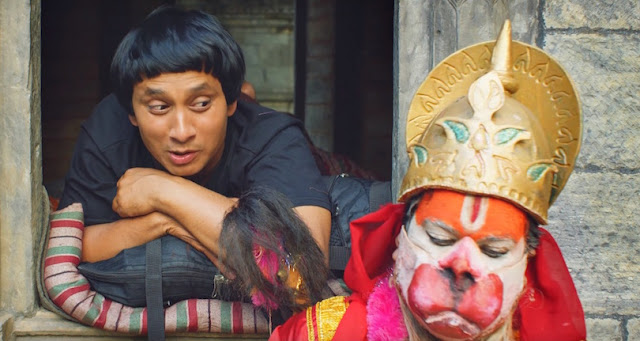Why I thought Pashupati Prasad had insane ending?
 |
| Source: Theatrical Trailer |
If you haven’t had the chance to catch up with this movie, I
suggest you do before reading this, just give it a go. Simply because it’s
awesome and its 9.2 in IMDb rating which is as same as The Shawshank Redemption! And for those who don’t want to…..
well, spoilers ahead!!!
The thing is, I did not like the ending of the story. When I
was in the theater, I was petrified of the fact that the writer killed Pashupati
Prasad in the end. I mean, why?? Restless from this tragic ending, I shared my
disappointment to its writer on Twitter saying that I was very disappointed on
how you ended the story. Of course, he never replied. But this dissatisfaction
lingered in my brain for a long time. I was a bit apprehensive thinking there
was no necessity to kill Pashupati Parsad because finally, everything was
falling into place for him. After life long suffering and sorrow he was finally
going to be happy. That resonated with most of us as we think we are having
such a bad life as the character and there was some sense of hope for the good
life in the movie. But alas, the writer killed him. How could he? If writers give tragic ending to their stories
just to sensationalize it, well, they are hypocrites then.
But it was when, a friend of mine shared “Tragic Art”
concept to me, the disappointment started to turn in other direction. He said
that writers in books or cinemas tend to go for tragic ending so that the
reader or the audience will know the value of the life in their lives. Indeed,
the world we live is losing the tragic awareness of life. It is actually an
ancient Greek philosophy. Greek acknowledged that life is short and life is
very vulnerable that all times accidents may occur to us. This is believed that
to think a lot about this is not a procedure for getting depressed. On the
contrary, it’s a recipe for in a way appreciating every moment much more. It is
being sympathetic to other human being. It makes us realize that other people
that we meet at all circumstances are all the time wrestling deep tensions and
uncertainty.
George Eliot says that the reason why the world is not as
bad as it might be is because there are millions of people who rest their
unmarked grave. They are the people who have helped throughout their lives to
help people be a little bit saner, a little bit healthier and a little bit
happier. That is what Pashupati Prasad does to audience. In fact, he helped me
see life as a tragic business that we try to navigate as best as we can but
will never be completely free of pretty big problems. Deaths being the main one
because we all are sort of are headed towards it. Pashupati Prasad breeds a
kind of humanity which is sometimes in danger of being sucked out of us.
For that reason Pashupati Prasad dies, as Virginia Woolf once
said “Someone has to die in order that the rest of us should value life more.”
I did not like the ending of Pashupati Prasad but I learned from his grand,
visionary and generous life, to get intact with my humanity even though being
anonymous in this life.


Comments
Post a Comment
thanks for reading :)
drop comments...